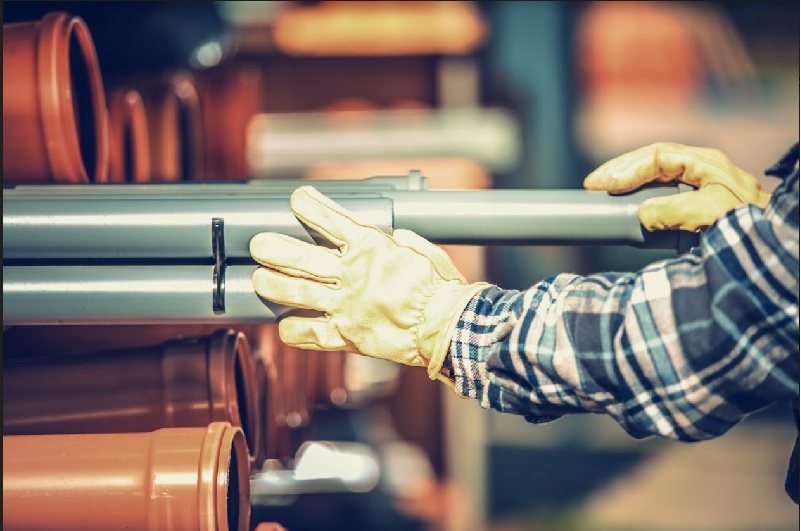
Pipelining is the best solution to prolong the life span of the pipes within a property. This procedure involves lining pipes with resin. It protects the pipe from corrosion and cracks that commonly happen to most pipe materials over time.
In addition, pipelining is the new way to repair pipes. It’s less time-consuming, and less expensive compared to replacing the pipe itself. Plus, some methods don’t need excavation, so there would be no obstruction in your property while the repairs and lining are done.
If you’re looking to repair or protect the pipes in your property, here are five tips to help you out in choosing the best pipe lining materials.

- Specify The Location Of The Property
Your property’s location is a huge factor in choosing suitable pipe lining material. Each area has its piping layout and plumbing standards, which will determine the method of the project.
The exact location of the property determines which equipment best fits the available space. For example, if your property is in an urban area with little area for this project, you have to choose compact pipe lining equipment. This will help quicken the process without causing inconvenience to other property owners within the vicinity.
Specifying your location will also give you an idea of where to get pipe lining materials. You may look for local plumbing and pipelining services within your area that use high-quality and above-standard pipe lining materials.
- Inspect The Current Condition Of The Pipes
Before having the pipes lined, it’s best to inspect the current condition of the pipes. The areas with cracks and leaks, as well as the location of the curves will be identified.
During the inspection, the expert will use a camera to look through the pipe. This trenchless method allows you to see the damage without having to dig. This process causes less disruption to your property compared to the traditional method.
Furthermore, the pipeliner can only determine the best pipe lining material after a thorough inspection. For curved pipes, one of the best materials is a felt liner. Felt liners are very flexible and can accommodate a 90-degree curve, ensuring the resin is properly cured and intact even in curved spaces.
- Determine The Fluid Flowing Through The Pipe
The fluid flowing through the pipe to be lined or relined should always be considered. Each pipe in your property may require different materials concerning your safety.
For pipes that bring potable water to your property, it’s best to choose lining materials made with a staple fiber geotextile and an epoxy resin mixture safe for drinking water. There are also pipe lining materials that can withstand pressurized pipes, allowing the service to flow through while the relining is ongoing.
On the other hand, drainage and pool systems may require a different pipe lining material. These pipes are elongated; therefore, you need a liner that’s both flexible and highly durable. The pipeliners may also use special equipment to harden the resin for half the usual project timeline.
Pipelining is very specific for each type of fluid flowing through the pipes. Following particular standards will help keep your property safe. Plus, the job will be done faster, making it more economical and convenient.
- Consider The Availability Of Materials
The availability of materials affects the quality and the cost of the project. Expect to prepare an extra budget if the pipe lining materials need to be transported from a far-off location.
Within the US, there’s a wide range of options for pipelining. Since this method has been around for decades, the availability of the best pipe lining materials is no longer a problem for most areas.
Some of the most common pipe lining materials are felt and polyester, inflated using a calibration tube. There is also compact equipment specifically used for applying the resin evenly on the liner.
- Hire Professional Pipe Lining Services
Getting a project done by a group of trusted professionals ensures the quality of the project. Expert pipeliners and plumbers also provide pipe lining services that follow your region’s standards.
Professionals who have been offering excellent Cured-in-Place Pipe (CIPP) technology for decades can surely get the project done efficiently. They will specify the materials according to pipe size, fluid flow, temperature, and the type of pipes in your property.
Moreover, professional pipe lining services already have the proper equipment for the project, making it more cost-effective. They can connect you directly to the suppliers of the best materials. They will also plan out the project precisely to avoid any interruptions within the property, especially if there are occupants.
Hiring the best pipe lining service providers will save you from a lot of hassle. You’ll also be informed about the details of the whole procedure, like the total project cost and the timeline to finish the project.
Conclusion
Pipelining is a revolutionary method in repairing pipes. This new process is more cost-efficient and less destructive than replacing pipelines and doing traditional repairs. Moreover, it can also help improve property value, which is a great advantage for property owners.










